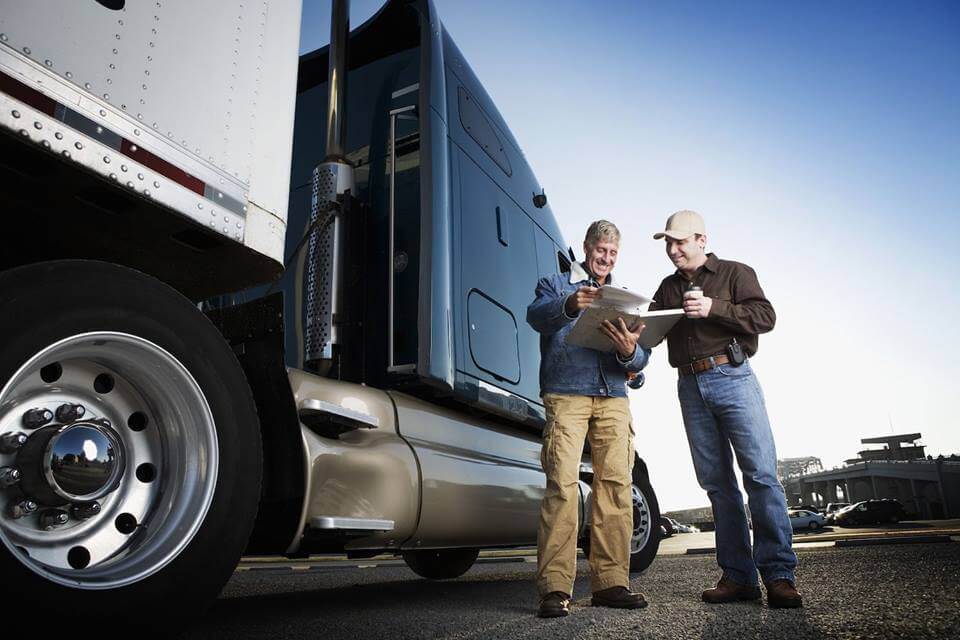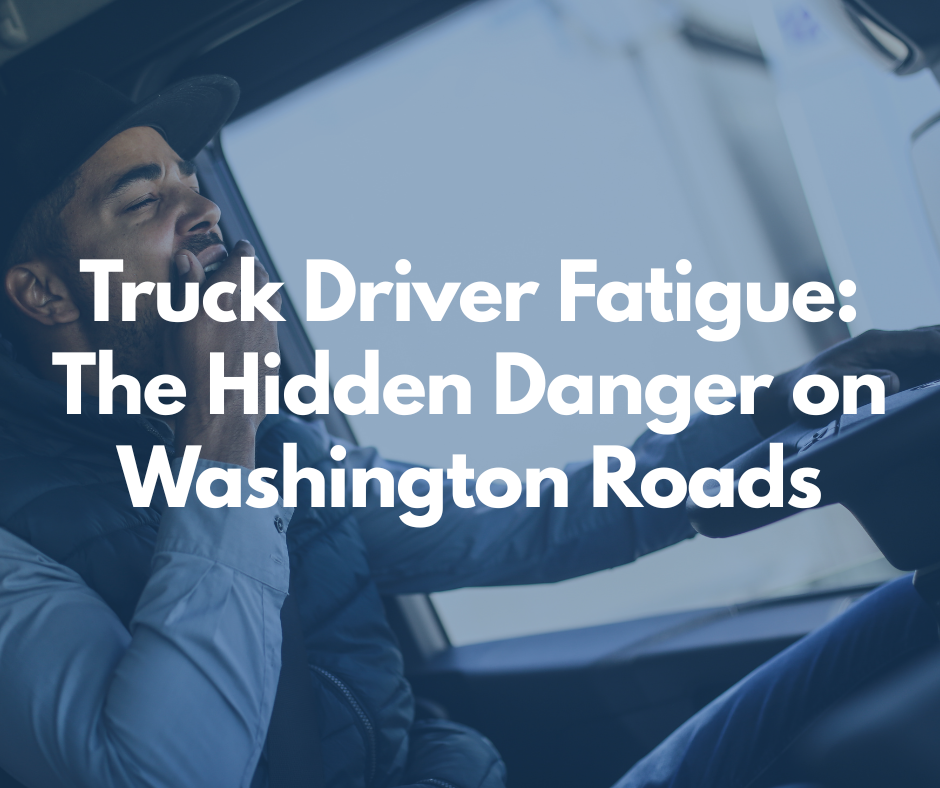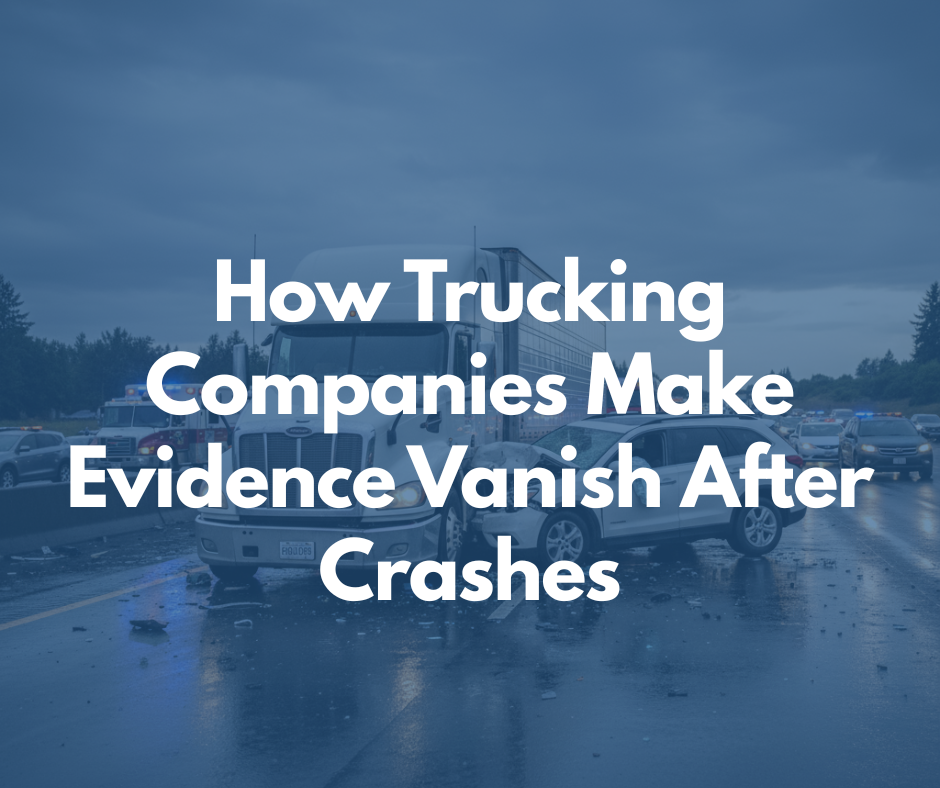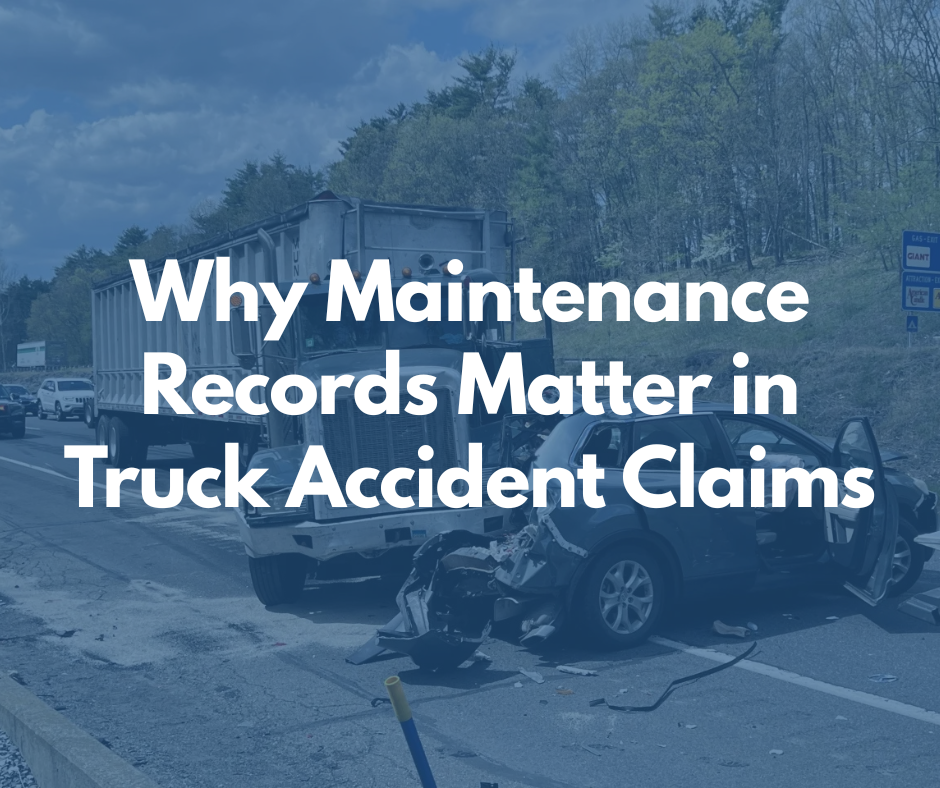
As Fort Collins truck accident lawyers, we know that the Fort Collins area is a large hub for commerce and transportation. The communities of Northern Colorado rely heavily on large, commercial sized vehicles to deliver goods, remove waste, and transport passengers.

Large commercial trucks and vehicles help our local business and economy, but they can also be dangerous for drivers of passenger cars. Crashes with these large commercial vehicles that often weigh over 10,000 pounds come with their own set of specific rules, regulations and laws that most personal injury law firms aren't fully versed on.
Our NBTA Board Certified Truck Accident Attorneys helped to create this guide for the general public to have a better understanding of heavy vehicles on the roads, their regulations and how to safely share the road with them in order to avoid crashes and serious injuries.
Understanding Semi-Trucks and Heavy Vehicles
Large trucks, also known as commercial vehicles or heavy vehicles, are any vehicle exceeding 10,000 pounds Gross Vehicle Weight Rating (GVWR). This category encompasses a wide range of vehicles you see on the road every day, including:
- Semi-trucks (18-wheelers): These iconic long-haul trucks haul trailers carrying a vast array of goods.
- Delivery trucks: From box trucks to refrigerated vans, these vehicles deliver everything from groceries to furniture.
- Buses: Public transportation buses and school buses fall under the heavy vehicle category.
- Garbage trucks: These specialized vehicles collect and transport waste throughout our communities.
- Dump trucks: Essential for construction projects, dump trucks haul and unload loose materials.
- Other large trucks: This category includes concrete mixers, fire trucks, and other specialized vehicles.
The sheer size and weight of these vehicles create significant safety concerns for drivers of passenger cars. Understanding the specific dangers is crucial for navigating the roads safely. A highly experienced commercial vehicle accident lawyer will have a deep understanding of these different types of large vehicles and will be familiar with the unique situations each type of vehicle has when involved in crashes with passenger cars.
Safety Concerns When Sharing the Road with Large Trucks
Several factors can come into play when you've been involved in a large truck crash, like a delivery truck accident, bus accident, semi-truck crash or any heavy vehicles over 10,000 pounds.
Crash Dynamics
The immense weight disparity between passenger cars and large trucks puts car occupants at a much higher risk of severe injury or death in a collision.

Here are some specific dangers:
- Underride: In rear-end collisions, a car can slide under the trailer of a truck, causing catastrophic crushing injuries.
- Rollover: The weight and height of large trucks can increase the risk of rollovers for cars, especially during evasive maneuvers or in high winds.
- Increased Impact Severity: Due to the weight difference, even a minor collision with a large truck can cause significant damage and injuries to car occupants.
Driver Behavior
While truck drivers are professionals, human error can still occur. Here are some potential safety hazards to be aware of:
- Blind Spots: Large trucks have extensive blind spots, particularly on the sides and rear of the vehicle. Cars can easily disappear from a truck driver's view.
- Impaired Visibility: Adverse weather conditions like rain, fog, or snow can further limit a truck driver's visibility, increasing the risk of accidents.
- Distracted Driving: Just like any other driver, truck drivers can be distracted by cell phones, fatigue, or eating while driving.
A commercial vehicle attorney with the depth of the experience like our truck accident attorneys at Metier Law Firm will know how to properly investigate your case to determine if the driver of the commercial vehicle may have been exhibiting some unsafe driver behaviors.
The Dangers of Improperly Secured Loads
One of the most significant safety hazards posed by large trucks is the improper securing of cargo. When loads are not adequately restrained, they can shift during transit, leading to catastrophic consequences. Here's some of

the risks from having unsecured or improperly secured loads on commercial vehicles:
- Cargo Loss: Unsecured loads can fall off trucks, creating hazards for other motorists and pedestrians.
- Rollover Accidents: Shifting cargo can disrupt a truck's center of gravity, increasing the risk of rollovers.
- Jackknifing: Unbalanced loads can contribute to jackknifing, where the trailer swings out sharply, potentially causing multiple vehicle accidents.
- Damage to Infrastructure: Falling debris from unsecured loads can damage roads, bridges, and other infrastructure.
Cargo Securement
To mitigate these risks, both federal and state regulations govern cargo securement. The Federal Motor Carrier Safety Administration (FMCSA) establishes minimum standards for securing cargo, including requirements for tie-down devices, load distribution, and inspection procedures.
Colorado, like many states, has additional regulations to supplement federal requirements. These may include specific guidelines for certain types of cargo, such as oversized or hazardous materials. It's essential for trucking companies to comply with both federal and state regulations to ensure the safety of their drivers and the public.
If you believe a crash with a commercial vehicle was caused by improperly secured cargo, it's crucial to consult with an experienced Fort Collins truck accident attorney.
Understanding loads and how they're secured requires a certain knowledge base that many personal injury attorneys may not be familiar with. This is why it's essential to find a personal injury law firm that has a deep understanding of all aspects of the commercial transport industry. Look for law firms that have board certified truck accident attorneys on staff, as this will be a sign that they have a more complete understanding of all the trucking and transportation laws not only for the state, but federally as well.
Tips for Sharing the Road with Large Trucks
Sharing the road with large trucks demands heightened awareness and defensive driving strategies. Fortunately, there are several things you can do to minimize risks when sharing the road with large trucks:
Drive Predictably
- Use your turn signal early before changing lanes in order to give other drivers time to recognize your lane change
- Don't change into multiple lanes instantly. Give yourself enough time to

- gradually move over to where you want to be, one lane at a time
- Never Cut Off a Commercial Vehicle. Due to their size and weight, large trucks require significantly more space and time to slow down or maneuver. Avoid aggressive driving tactics and give trucks ample space to change lanes or make turns.
- Maintain safe and legal speeds for the roads you're on. Driving too fast can confuse other drivers about what you will do, while driving too slowly may make them drive unpredictably to pass you.
- Only pass a truck when it is safe and legal to do so. Use designated passing lanes whenever possible, and ensure you have a clear view of oncoming traffic before passing.
Increase Your Visibility
- Be Aware of Blind Spots. Large trucks have extensive blind spots on the sides and rear. Avoid lingering in these areas and give plenty of space to the truck whenever possible.
- Use daytime headlights to help other drivers see you
- Have a clean windshield and lights to have a clear view and avoid glare
Avoid Distractions
- Stay off your phone
- Limit your passenger conversations to focus on the road
- Try to avoid eating and drinking to maintain your attention
Be Weather Conscious
- Reduce speed to match the current road conditions
- Maintain a safe following distance to allow yourself plenty of time to stop, particularly in poor weather conditions
- Avoid braking abruptly, especially in wet or icy conditions. Slow your vehicle gradually to maintain control
Understand Trucking Routes
- Local Knowledge: Familiarize yourself with common truck routes in your area. This knowledge can help you anticipate truck traffic and plan your routes accordingly.

- Avoid Peak Hours: If possible, avoid driving during peak traffic hours when commercial trucks are more likely to be on the road.
- Be Patient: When encountering truck traffic, exercise patience. Avoid cutting off trucks or engaging in aggressive driving behaviors.
By following these guidelines, you can significantly enhance your safety when sharing the road with large trucks. Remember, defensive driving and constant awareness are crucial for preventing accidents.
The Importance of Commercial Driver Regulations in Colorado
To ensure the safety of all road users, Federal and state governments have implemented stringent regulations governing commercial truck drivers. These regulations are designed to minimize the risk of accidents and protect the public.
Commercial Driver's License (CDL)
To operate a commercial motor vehicle (CMV) in Colorado, drivers must possess a Commercial Driver's License (CDL). This license requires rigorous training and testing to ensure drivers have the necessary knowledge and skills to handle large vehicles safely. Colorado's CDL requirements align with federal regulations established by the Federal Motor Carrier Safety Administration (FMCSA).
Hours of Service (HOS) Regulations
Fatigue is a significant factor in truck accidents. Colorado enforces strict Hours of Service (HOS) regulations to limit the number of hours a commercial truck driver can operate a vehicle without adequate rest. These regulations are designed to prevent fatigued driving and reduce the likelihood of accidents.
Vehicle Inspections and Maintenance
Colorado mandates regular inspections and maintenance for commercial vehicles. These inspections help ensure that trucks are in safe operating

condition. Key components such as brakes, tires, lights, and steering systems are thoroughly examined to identify and rectify any potential issues.
Beyond these core regulations, Colorado also has specific laws addressing other critical safety aspects:
- Drug and Alcohol Testing: Commercial truck drivers in Colorado are subject to mandatory drug and alcohol testing to prevent impaired driving.
- Electronic Logging Devices (ELDs): To ensure compliance with HOS regulations, Colorado requires most commercial motor vehicles to be equipped with ELDs. These devices electronically record a driver's on-duty, driving, and off-duty time.
- Vehicle Weight Limits: Colorado imposes strict weight limits on commercial vehicles to protect infrastructure and reduce the risk of accidents caused by overloaded trucks.
By adhering to these regulations, Colorado aims to create a safer road environment for everyone. However, accidents involving commercial vehicles still occur. If you've been injured in a truck accident, it's crucial to seek legal counsel from an experienced Fort Collins truck accident attorney to protect your rights and pursue the compensation you deserve.
What to Do After a Truck Accident
If you've suffered a truck crash injury with any type of large commercial vehicle in Fort Collins or the surrounding area, it's crucial to seek legal help. A board certified truck accident attorney that deals with commercial vehicle accidents regularly can assist you in understanding your legal rights. They can also help you gather evidence to support your case. Additionally, they can guide you through the process of seeking compensation for any injuries you have sustained. Metier Law Firm has two board certified truck accident attorneys on staff to help you with your needs after a crash with a commercial vehicle.
Conclusion
At Metier Law Firm, our experienced Fort Collins truck accident lawyers who are some of the nation's top commercial vehicle injury attorneys, are dedicated to protecting the rights of accident victims. We understand the challenges you face, the complex regulations and laws that are involved, and we're here to help. Contact us today for a free and confidential consultation at (866) 377-3800 or visit us at metierlaw.com.
Tell Us About Your Case – Free Case Review with a Fort Collins Truck Accident Lawyer
Tell Us About Your Case – Free Case Review with a Personal Injury Lawyer
(866) 377-3800Our Locations
.webp)
Do I have a Case?
How Much Should I Be Offered?
Do I Need an Attorney?
If these questions have crossed your mind, let us help. You may need a little direction or may not need an attorney at all, but you deserve to be confident knowing your options. We can provide you with information about our Attorneys of the West® accident investigations and legal services. Your confidential consultation with us is totally free.
Keep up with us!

.svg)




